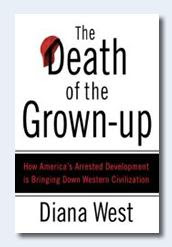
The radio has recently been advertising about relational conflicts and how to resolve them. Sometimes they just mention a dramatic relational conflict with a closely followed disclaimer that the advertised product will not be able to remedy that kind of situation. But other commercials have been claiming that therapy is something that would solve these problems, most specifically with your marriage, or with your children. Among other techniques, the claim goes that if you simply use certain words, your marriage will thrive with harmony and romance, and/or your children will stop being disobedient or obnoxious. But is that what it really takes to remedy the problem? Are there really words that, if said, would heal months or even years of conflict with another person or group of people? Or if you simply do certain things like take someone where they like to go, or buy them something special, or any combination of things like these, will that gain true peace?
We have such a tendency to want quick-fix solutions, and often they only provide surface-level solutions. If a child gets put in his/her place by the parent and no love is shown, bitterness can easily take root in the child's heart. Friends can have long-term division between them just over one conversation, and there's no quick fix to restoring the trust that was once there. It takes a deeper change within us to enact lasting restoration at the heart level.
To effect the heart to have true liberty from bondage to our sin, God says that we must go to His Word, and only His Word, "All Scripture is breathed out by God and profitable for teaching, for reproof, for correction, and for training in righteousness, that the man of God may be competent (or complete), thoroughly equipped for every good work." 2 Tim. 3:16, 17. God's Word is the manual for overcoming any sin issue, no matter how long-standing they have been. And the range of these issues are unlimited because the Scriptures equip us for every good work.
Now this does not diminish the need for counselors. The Scriptures are replete with looking out for each other in the local body of Christ. 1 Corinthians 12 says that very clearly. So then the quesiton arises, who should counsel? I'm glad you asked! Paul, by the inspiration of the Holy Ghost, writes, "I myself am satisfied about you, my brothers, that you yourselves are full of goodness, filled with all knowledge and able to instruct one another." (Romans 15:14). The answer to the question is that all believers are (at least potentially) able to counsel one another. If you are following Christ, you can tell others to follow you as you follow Christ (1 Cor. 11:1). If you are skilled in the word of righteousness and are no longer a baby needing milk in the spiritual sense (Heb. 5:13-14), you can help others in their childlike understanding to become mature (Heb. 6:1ff). If you are mature and see a brother dealing with a besetting sin or carrying a huge burden, you can help him deal with that (Gal. 6:1-3). These are (among other things) the foci for the true Christian. Why should we need anything else besides God's revelation to us to make us who Christ wants us to be? In Christ are all the treasures of wisdom and knowledge.
So, is modern psychology useless and helpful for nothing? No. Is it something that can help us in the sanctification process? No. Why? Because we have begun following Christ by the Spirit, and cannot be perfected by the flesh (Gal. 3:1-6, esp. v. 3). Modern psychology is rooted in viewing man as basically good, not responsible for his sin, and/or no different from an instinctual animal (referencing http://www.crechurch.com/counseling/comparison_of_counseling_philoso.htm).
How can this be adopted by the Christian, or even mixed just a little bit with the giving of sound biblical advice? They are two completely different worldviews with two completely different results. The Scriptures are what we need to live out to be completely acceptable before God, and we ought to listen to people who encourage and warn us to heed Him in all things.
Image used from www.cdc.gov/std/EPT/

